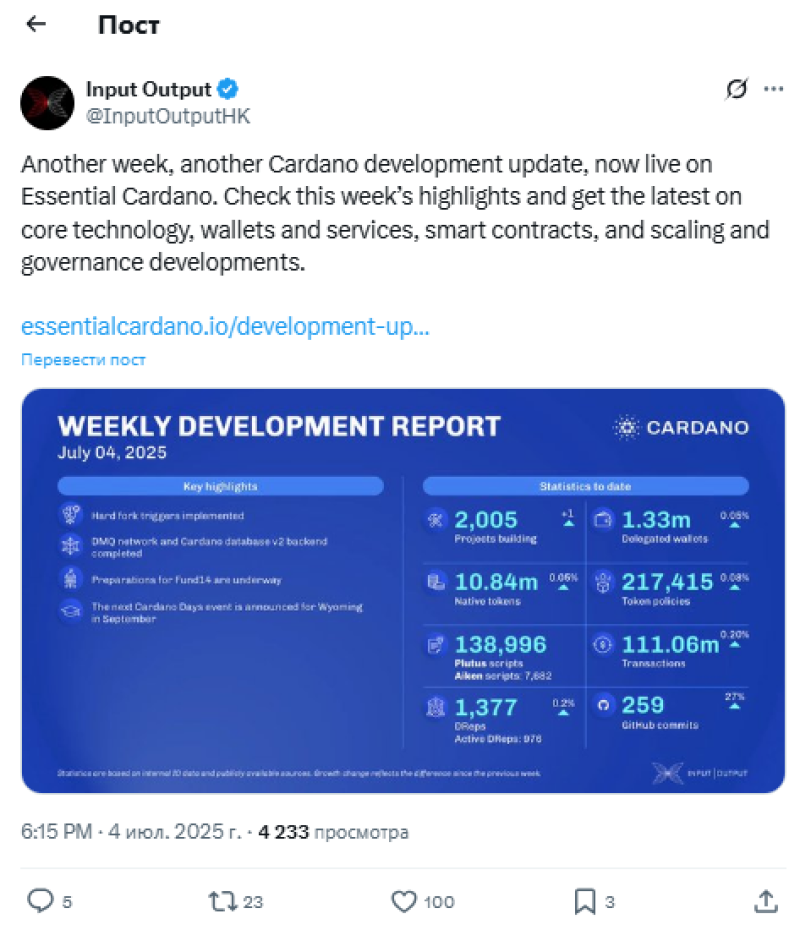Cardano (ADA) just smashed through 111 million total transactions on its blockchain, marking a huge win for the platform's growing user base and rock-solid infrastructure. This isn't just about hitting a nice round number—it shows real people are actually using the network more, diving into decentralized apps, and the whole Cardano ecosystem keeps getting stronger.
ADA Network Shows Impressive Growth Across All Metrics
The 111 million transaction milestone proves Cardano can handle serious volume without breaking a sweat. What's really impressive? The network has stayed up and running for over seven years straight—that's reliability you can count on.
Here's what's happening on the network right now: 2,005 active projects are building on Cardano, while 1.33 million wallets are staking their ADA. Smart contracts are exploding too, with 138,996 Plutus scripts and 7,682 Aiken scripts running. The governance side is heating up as well—1,377 DReps are registered, with 976 actively participating in decisions.

Developer activity is through the roof with GitHub commits jumping 27% to 259. According to Santiment's latest report, Cardano's dev team ranks fourth for notable GitHub activity, showing this project isn't slowing down anytime soon.
Cardano (ADA) Price Action and Market Position
ADA is trading at $0.5719 right now, down 1.96% in the last 24 hours—pretty much in line with the broader crypto market taking a hit. But here's the thing: Cardano's market cap is back above $20 billion, sitting at $20.23 billion. That tells you investors still believe in where this project is heading.
Project Acropolis: Cardano's (ADA) Next Big Leap
Cardano is working on something called Project Acropolis that could change everything. Instead of developers having to work around the current system, they'll be able to build apps right inside the Cardano node itself.
The project kicked off in October 2024 with the Caryatid framework and is still in early testing. Right now, Cardano's node is basically one massive, complicated system doing everything at once. Acropolis wants to break that down into smaller pieces that can talk to each other and be mixed and matched however developers need them.
If this works out, it could make Cardano way more flexible and easier to build on, keeping ADA competitive in the fast-moving crypto world.
 Usman Salis
Usman Salis

 Usman Salis
Usman Salis


